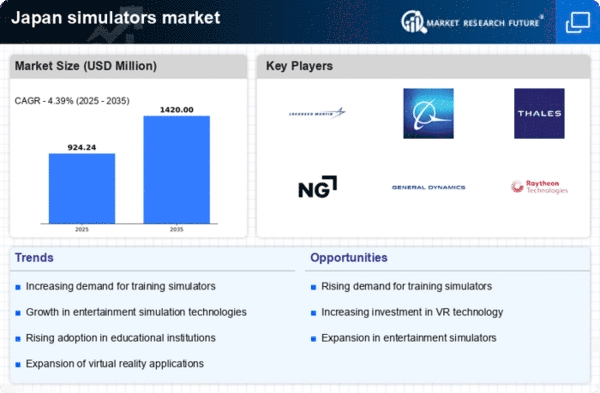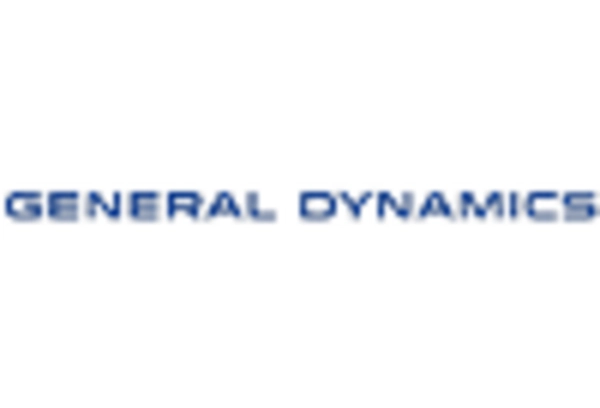Expansion of E-Learning Platforms
The expansion of e-learning platforms in Japan is significantly impacting the simulators market, as educational institutions and corporate training programs increasingly incorporate simulation-based learning. This shift towards digital education is supported by advancements in technology and a growing acceptance of online learning methodologies. Recent statistics indicate that the e-learning market in Japan is projected to reach $10 billion by 2026, suggesting a robust demand for innovative training solutions. Consequently, the simulators market is likely to benefit from this trend, as educational entities seek to enhance their curricula with interactive and engaging simulation tools.
Rising Demand for Training Simulators
The simulators market in Japan experiences a notable surge in demand for training simulators across various sectors, including aviation, healthcare, and military. This trend is driven by the necessity for realistic training environments that enhance skill acquisition and safety. For instance, the aviation sector has reported a growth of approximately 15% in the adoption of flight simulators, reflecting a broader inclination towards immersive training solutions. The simulators market is thus positioned to benefit from this increasing demand, as organizations seek to improve training efficacy and reduce operational risks.
Growing Focus on Safety and Risk Management
The simulators market in Japan is increasingly influenced by a growing focus on safety and risk management across various industries. Organizations are recognizing the value of simulation training in mitigating risks and enhancing operational safety. For example, the healthcare sector has seen a rise in the use of medical simulators, with a reported increase of 12% in adoption rates. This emphasis on safety training is expected to drive growth in the simulators market, as companies seek to implement effective training solutions that prepare personnel for real-world challenges.
Integration of Virtual Reality Technologies
The integration of virtual reality (VR) technologies into the simulators market is transforming the landscape of training and entertainment in Japan. VR offers immersive experiences that enhance user engagement and learning outcomes. The market for VR-based simulators is projected to grow at a CAGR of 20% over the next five years, indicating a robust interest in advanced simulation technologies. This trend suggests that the simulators market will likely see a proliferation of VR applications, catering to diverse sectors such as education, gaming, and professional training.
Increased Investment in Research and Development
Investment in research and development (R&D) within the simulators market is crucial for fostering innovation and enhancing product offerings. Japanese companies are allocating substantial resources to develop cutting-edge simulation technologies, which may lead to improved realism and functionality. Recent data indicates that R&D spending in the technology sector has increased by 10% annually, reflecting a commitment to advancing simulation capabilities. This trend is likely to bolster the competitiveness of the simulators market, as firms strive to deliver superior products that meet evolving consumer demands.
















